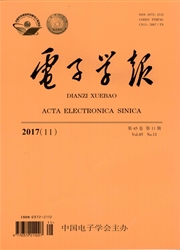

 中文摘要:
中文摘要:
在现实世界中邻居个体对个体影响权重的大小与邻居个体在集群系统中的地位和邻居个体与个体之间的相互状态有着密切的联系,为了模拟这种情况,提出一个模仿鸽群决策机制的集群系统协同控制策略模型,模型中各个个体根据邻居个体的在集群系统中的权重和距离来影响个体的状态变化,并且避免了leader—follow模型中因为leader的故障而导致整个集群的混乱和失效,并且通过仿真实验证明了在采用模仿鸽群决策机制的情况下,整个集群系统可以达成渐进的一致性。
 英文摘要:
英文摘要:
Neighboring individuals with communication links determine the state, and the weight of different individuals in the group. However, in practice, there are closer relations between the status of neigh- boring individuals in a coUective system, and the decision-making weights of its neighbors are constant. To imitate this situation, a strategic model of collective system coordination and control was proposed by irhitating the decision-making mechanism of pigeon flocks. Each individual changes its situation based on the weighting and distance to the neighboring individuals in the collective system. This avoids complica- tions due to malfunction of the leader in a leader-follower model. Simulations were employed to show that the entire collective system becomes consistent by imitating the decision-making mechanism of pigeon flocks.
 同期刊论文项目
同期刊论文项目
 同项目期刊论文
同项目期刊论文
 期刊信息
期刊信息
